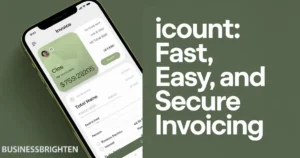Buying a second home while renting out your first can be a smart financial move. First, evaluate your finances. Ensure you can afford a new mortgage and have enough for a down payment. Check your credit score and calculate your debt-to-income ratio to qualify for the best loan terms.
Prepare your first home for renters. Make any necessary repairs and upgrades to attract quality tenants. Set a competitive rental price by researching local markets. Advertise your property effectively to find the right tenants quickly.
Manage both properties efficiently. Decide if you want to hire a property manager or handle it yourself. Understand your legal responsibilities as a landlord and keep up with maintenance requests. Screen tenants carefully and maintain good communication to ensure a smooth rental experience.
Assessing Your Financial Situation
Assessing your financial situation is important. Overview your current mortgage and calculate your price range for a second home. Take into account the down charge, monthly payments, and extra expenses like coverage.
Check your credit score and debt-to-income ratio to ensure you qualify for an amazing loan. Careful making plans facilitates you make informed selections.
Evaluating Your Current Mortgage
Evaluating your current mortgage is important before buying a second home. Start by reviewing your mortgage terms. Check the remaining balance and interest rate. Understand any penalties for early repayment.
Consider your current monthly payments. Ensure you can handle both mortgages. Compare your current mortgage with new loan options. This helps you decide the best financial move.
Calculating Your Budget for a Second Home
Calculating your budget for a second home is essential. Here are the main steps:
- Determine your down payment amount.
- Estimate your monthly mortgage payments.
- Include additional costs like insurance, property taxes, and maintenance.
- Check your savings to cover these expenses.
- Ensure your income can support two mortgages.
Preparing Your First Home for Rental
Preparing your first home for rental is crucial. Start by making essential repairs and upgrades to attract tenants. Clean the property very well and make sure all home equipment paintings. Set a competitive apartment price by discovering nearby marketplace costs.

Put it on the market your property on popular rental websites and social media. This can help you locate quality tenants quickly.
Making Necessary Repairs and Upgrades
Making necessary repairs and upgrades boosts your rental property’s appeal. Fix any damages like leaky faucets or broken windows. Update outdated features, such as old appliances or worn-out flooring.
Focus on improvements that add value. A fresh coat of paint and modern fixtures can make a big difference. Ensure the home is safe and comfortable for tenants. These efforts help you attract reliable renters and set a higher rental price.
Setting a Competitive Rental Price
Setting a competitive rental price is crucial. Start by researching local rental market rates. Compare similar properties in your area. Look at their size, condition, and amenities. This helps you understand what tenants are willing to pay.
Consider your expenses. Calculate your mortgage, taxes, and maintenance costs. Ensure the rental price covers these expenses and provides a profit. Set a fair price that attracts tenants and keeps your property occupied.
Marketing Your Rental Property
Marketing your rental property can be simple and effective. Here are some key steps:
- Take high-quality photos.
- Write a clear and catchy description.
- List your property on popular rental websites.
- Use social media to reach a wider audience.
- Offer virtual tours to potential tenants.
- Highlight unique features of your property.
- Set a competitive rental price.
- Respond quickly to inquiries.
By following these steps, you can attract quality tenants quickly.
Related Article: HOW TO MOVE A MOBILE HOME FOR FREE? TIPS FOR BIG SAVINGS
Financing Your Second Home
Financing your second home requires careful planning. Compare mortgage options and choose the best one. Save for a down payment and manage your credit score.

Understanding Mortgage Options
- Conventional loans offer flexibility.
- FHA loans require lower down payments.
- VA loans are for eligible veterans.
- Jumbo loans cover high-value properties.
Comparing Interest Rates and Terms
- Check different lenders for the best rates.
- Compare fixed and adjustable-rate mortgages.
- Look at the loan term options.
- Consider the overall cost of the loan.
Qualification Requirements
Meeting qualification requirements is essential for loan approval. Here are some key points:
- Maintain a good credit score.
- Show proof of stable income.
- Provide employment history.
- Have enough savings for a down payment.
- Keep your debt-to-income ratio low.
By meeting these requirements, you increase your chances of securing a loan.
Down Payment and Closing Costs
You want to save for a down charge. Most lenders require as a minimum 10-20% of the home’s purchase charge. A bigger down price can decrease your monthly payments and interest fee.
Closing costs
Prepare for remaining prices, which cowl various charges. These expenses encompass appraisal, inspection, and legal charges. Generally, remaining prices range from 2-5% of the house’s buy charge.
Managing Both Properties

Managing both properties requires organization and planning. Create a schedule for regular maintenance. Hire reliable property managers if needed. Keep track of expenses and income for each property.
Use property management software to streamline tasks. This will help you efficiently manage both homes.
Hiring a Property Manager vs. DIY Management
| Aspect | Hiring a Property Manager | DIY Management |
| Time Commitment | Minimal | High |
| Expertise | Professional knowledge | Self-taught |
| Cost | Management fees | No management fees |
| Tenant Screening | Managed by professionals | Handled by owner |
| Maintenance | Coordinated by manager | Owner arranges |
| Emergency Handling | 24/7 response by manager | Owner must be available |
| Rent Collection | Handled by manager | Managed by owner |
| Legal Issues | Managed by experienced professionals | Owner must learn and handle |
Legal and Tax Implications
Owning a second home comes with felony responsibilities. You need to comply with local zoning legal guidelines and landlord-tenant guidelines. Make certain your rental agreements are clean and legally binding. Be prepared to handle disputes consistent with the law.
A second home has tax implications. You may qualify for loan interest deductions. Apartment income must be reported to your tax go back. Maintain statistics of all fees for capability deductions. Seek advice from a tax expert to maximise your blessings.
Maximizing Rental Income

Owning a 2nd domestic involves understanding legal and tax implications. You need to comply with local laws and document apartment income on your taxes. Consulting specialists can help you navigate those obligations correctly.
Tenant Screening and Lease Agreements
Tenant Screening
- Check credit history to ensure financial reliability.
- Verify employment and income for stability.
- Contact previous landlords for references.
- Conduct background checks for safety.
- Interview potential tenants to gauge suitability.
Lease Agreements
- Draft a clear and detailed lease agreement.
- Include terms for rent, security deposit, and duration.
- Outline tenant and landlord responsibilities.
- Specify rules for property use and maintenance.
- Ensure both parties sign and keep a copy of the lease.
Maintaining Tenant Satisfaction
Maintaining tenant satisfaction is essential for a successful rental property. Respond quickly to maintenance requests and fix issues promptly. Keep the property clean and well-maintained. Regularly check in with tenants to ensure they are happy. Address any concerns they might have immediately.
Communicate clearly and regularly with your tenants. Inform them of any changes or upcoming maintenance work. Be respectful and courteous in all interactions. Happy tenants are more likely to stay longer and take higher care of your house. By means of retaining your tenants satisfied, you may make certain a smooth condo enjoy.
Related Content: UNCOVERING THE HIDDEN COSTS OF BUYING A MOBILE HOME IN A HIGH-DEMAND MARKET
Potential Challenges and Solutions
Dealing with vacancy periods can be tough; minimize them by marketing effectively and setting competitive prices. Handling difficult tenants requires clear communication and knowing your legal rights for conflict resolution and eviction. Financial planning is key; save for unexpected repairs and vacancies to stay prepared.
Dealing with Vacancy Periods
Dealing with vacancy periods can be challenging. Advertise your rental property widely to attract tenants quickly. Offer virtual tours to reach more potential renters. Set a competitive rental price based on market research.
Keep the property well-maintained and ready for new tenants at all times. Save funds to cover mortgage payments during vacant periods.
Handling Difficult Tenants
Handling difficult tenants requires clear and calm communication. Listen to their concerns and address issues promptly. Set clear rules and enforce them consistently.
Document all interactions and keep records of any problems. Know your legal rights and procedures for eviction if necessary. Seeking mediation can sometimes resolve conflicts peacefully.
Frequently Asked Questions
What should I consider before buying a second home?
Check your finances, credit score, and debt-to-income ratio. Ensure you can afford a new mortgage and down payment.
How do I prepare my first home for rental?
Make repairs, clean thoroughly, set a competitive rental price, and advertise effectively.
What are the benefits of hiring a property manager?
They handle tenant screening, maintenance, rent collection, and legal issues, saving you time and effort.
How can I minimize vacancy periods?
Advertise widely, offer virtual tours, set a competitive price, and keep the property well-maintained.
What are the key steps in handling difficult tenants?
Communicate clearly, address issues promptly, enforce rules, document interactions, and know your legal rights.
Final Thoughts
Buying a second home and renting out your first can be a great financial move. Plan carefully and manage your finances well. Prepare your first home to attract good tenants. Stay organized and communicate clearly with tenants. Whether you manage the properties yourself or hire a manager, keep everything in order. This ensures a smooth and successful experience.

Paul Mitchell, our website’s author, leverages 6 years of business expertise to provide insightful content. His wealth of experience enriches our platform, offering valuable insights for our readers.











